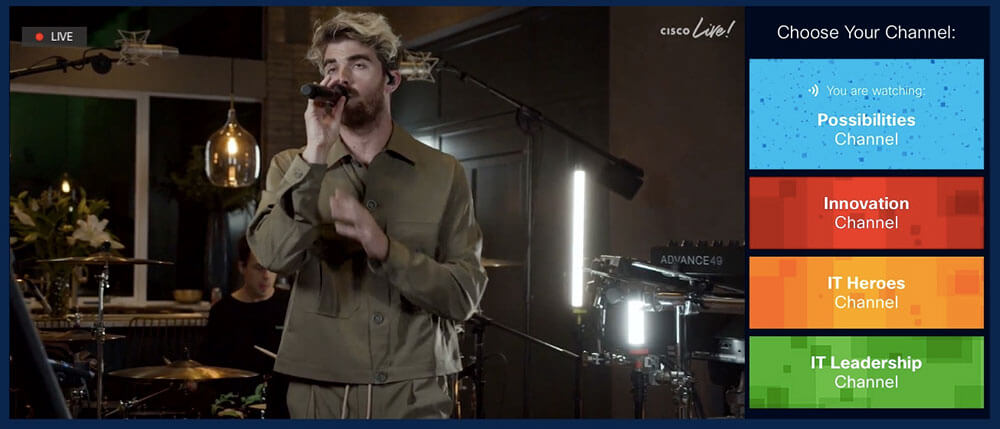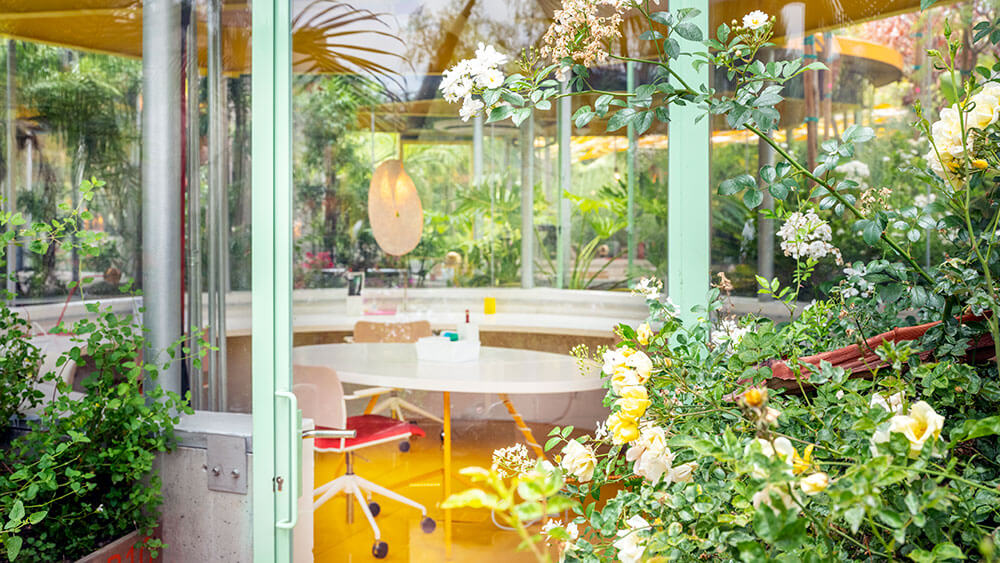
As the business events industry — and everyone else — says good riddance to 2020, the editors at Convene consider the business events industry trends they’ll be watching in 2021.
Many of the trends that were predicted for 2020 at the close of 2019 seem so far removed from our pandemic reality — didn’t we seem so innocent back then? So when I went to take a look at the trends Convene editors had their eye on at this time last year, I fully expected to find that they hadn’t aged well. But the pandemic hasn’t made the trends we spotlighted in our article obsolete — and digital editor Curt Wagner even seems prescient, writing, “As technology improves, virtual events are becoming more attractive.”
Still Have My Eye on A.I.
It’s a happy accident that I didn’t write about the first trend that came to my mind last December: How face-to-face experiences would become even more critical in 2020. Instead, I chose to write about how I would be following A.I. in 2020 and its impact on business events and society. Alas, like many other issues that were important to us last year, A.I. has taken a back seat to Convene’s coverage of the pandemic and the industry’s response. But, as our reliance on technology has grown and tech innovation has accelerated, A.I. has only become more a part of the largely unseen fabric of our lives.
Jeremy Kahn, who writes the “Eye on A.I.” newsletter for Fortune, published a recap of this month’s Neural Information Processing Systems (NeurIPS) virtual conference, the annual event for top academic A.I. researchers, which attracted more than 20,000 participants this year. Georgia Tech professor Charles Isbell was the opening

Ayesha Khanna
keynoter, and Kahn said he urged the A.I. field to consider “how a piece of technology will operate in the world, who will use it, on whom will it be used or misused, and what could possible go wrong.” These are all questions that should be “front-and-center when A.I. researchers sit down to create an algorithm,” according to Kahn. “And to get answers, machine learning scientists need to collaborate far more with other stakeholders.”
Many of the speakers in the conference program, he wrote, “picked up on this theme: how to ensure A.I. does good, or at least does no harm, in the real world.”
How will A.I. be put to good use in the events industry? We’ll get a taste of that at PCMA Convening Leaders 2021, Jan. 11–15, as Juno, the virtual event platform, is powered by A.I. Convene will also be speaking with a Convening Leaders Main Stage speaker in Singapore, Ayesha Khanna, co-founder and CEO of artificial intelligence solutions firm and incubator ADDO AI, to learn how she sees A.I. taking shape in the business events industry. — Michelle Russell

Frontman Drew Taggart and The Chainsmokers perform as part of the closing ceremony for a Cisco Live digital event earlier this year. Virtual event producers will continue to seek unique entertainment and engagement ideas to attract audiences.
Engaging Entertainment
When the COVID-19 pandemic began, meeting planners were tasked with the difficult job of transforming in-person events into virtual ones on an exceptionally tight timeline. For the first couple of months, stripped-down meetings were held over Zoom and like platforms so attendees could extract the most important information from the event and be on their way. But given more time — we’re nearing the 10th month since restrictions were first put into place in the United States — organizers have risen to the challenge to make their virtual events into a true experience, complete with wine and coffee tastings, musical performances, “virtual party rooms,” and more.
Now, people who are used to walking convention center halls have become seasoned virtual attendees, with a sharp eye for those digital events that place a premium on creating interactive experiences. In 2021, I expect this trend of unique entertainment and engagement to not only continue but expand as planners look for new ways to attract an audience — and attendees search for shared experiences with their physically distant peers. — Casey Gale

Many respondents to our Recovery Dashboard surveys say there are no one-stop tech shops for online events. The new Livestorm platform might be a solution. Founder Gilles Bertaux (center) said it “manages online events from end-to-end.”
Beyond the Zoom Boom
As 2020 rounds its final corner, it seems we have more tools at our disposal than ever to conduct business virtually.
Here’s a small sampling of some of the most recent rollouts: In November, the founder of Evernote launched mmhmm, a virtual presentation tool; Supernormal, an AI-powered recording tool that debuted in August, is following in video messaging company Loom’s wake; and, as we all well know, the video-conferencing space is now awash with options, from the ever-popular Zoom to growing platforms like Hopin and Livestorm.
I expect that list to keep growing well into 2021 and beyond, producing more nuanced solutions that seek to solve some of the more problematic issues that have come to light, like security.
Take Livestorm, a platform that has recently raised $30 million in Series B funding. Much like Zoom, it hosts online meetings and webinars, but it has several features that make it stand out. Its browser-supported design, for example, nixes the download requirement, making it more appealing to security-sensitive clients. The software also seeks to function like an all-in-one hub, much like marketing platform Hubspot, in that it can do everything from sending branded e-mail campaigns to spitting out in-depth analytics and data reports.
“We’ve been doing videos on Internet for nearly 30 years now, but it was mostly developed for the B2C,” Livestorm founder Giles Bertaux told me recently. Now you can grab your phone, “do an Instagram live, and you have thousands of people watching it,” he said. When you compare that to the options available in the B2B side — where “you’ve had to call a number, wait, and put in a pin code,” Bertaux said with a laugh — the gap is huge. This new wave of web tools will fill that gap, he said, and make it just as easy and intuitive as swiping through Instagram. — Jennifer N. Dienst

The health-and-wellness focused design of Second Home Hollywood, a co-working space in Los Angeles, includes work pods that are flooded with natural light, fresh air, and plants, and give workers plenty of room. Fresh air is pumped in from a hospital-grade HVAC system — a pre-Covid-19 decision that proved to be prescient. (Sinziana Velicescu photo)
Wellness at Meetings Will Be About More Than Stress Relief and Healthy Snacks
When I wrote about WELL building standards in 2019 — standards that are similar to LEED green building standards but focused on the human beings inside of buildings rather than the infrastructure — the chance of their becoming an urgent priority in the meetings industry seemed a long way off. But as has been the case in so many ways this year, the pandemic has greatly accelerated the trend toward putting the well-being of the people who gather in meeting spaces in first place.
More than 500 facilities hotels and convention center facilities already have been awarded the Global Biorisk Advisory Council’s (GBAC) Star rating, an accreditation that certifies adherence to a cleaning, disinfection, and infectious disease prevention program. “I think these will be the new checklists for meeting planners: Are you WELL [building] certified? Do you have air exchanges?” Michael Lockwood, senior principal at the architecture firm Populus, told me when I spoke to him earlier this year about how the pandemic is affecting convention center design. The standards will include, but go well beyond sanitation. “Meeting planners 10-15 years ago used to ask, ‘Are you LEED Gold and Silver [certified]?’” Lockwood said. “Now they will ask: ‘How much outdoor space do you have?’ ‘Can you open the doors and leave them open?’ ‘Do you have operable windows in your ballroom?’ Those are things that that we’ve never been asked before,” Lockwood said, “but I could see those being design criteria.” — Barbara Palmer

Skies over downtown Los Angeles are blue and Interstate 110 is almost traffic-free in the early days of the pandemic.
Hybrid Events — and Sustainability — Are Here to Stay
When I wrote in our trends piece last December that virtual events would become “more attractive,” of course I didn’t expect that a worldwide pandemic would be the reason for their rise.
Despite the rollout of COVID-19 vaccines, it’s clear that hybrid events are going to be a key trend of 2021. I’d like to return to what I pointed to as the impetus for the increase in virtual events last year: a concern over the business events industry’s environmental footprint.
Could the pandemic and its fallout could help usher in a renewed push for sustainable events? If the pandemic has done anything, it’s made us more aware of our sometimes combative relationship with the world around us. Earlier this year, pollution levels dropped within 10 days after lockdowns were initiated in 12 major global cities. I was saddened to see that those pollutants returned or surpassed pre-lockdown levels as lockdowns were lifted.
Pre-pandemic, the events industry had put a spotlight on sustainable initiatives, from eliminating single-use plastics to finding solutions for food waste. This year, those initiatives evaporated as quickly as face-to-face meetings did, but concern with the negative impact we are having on our planet doesn’t seem to have disappeared. More than 1,500 event organizers and suppliers responded to a survey for The Regenerative Revolution, a report published in October by the IMEX Group. Results compiled in January before the pandemic showed 90 percent of respondents agreed that an increasing focus on sustainability was important for the events industry. When asked again in May, after the pandemic had begun, 95 percent said their organizations were committed to developing more sustainable practices. That’s reason for optimism.
As Convene’s Recovery Dashboard results suggest, more immediate issues might be top of mind for events industry professionals and suppliers in early 2021. But the industry can, and should, use its ability to innovate to reset with eco-friendly initiatives and sustainable incentives in mind. — Curt Wagner
